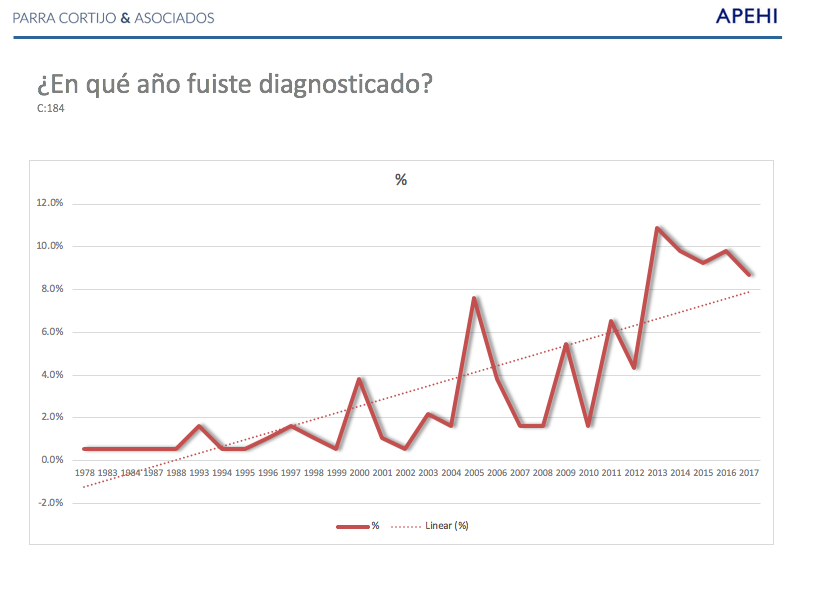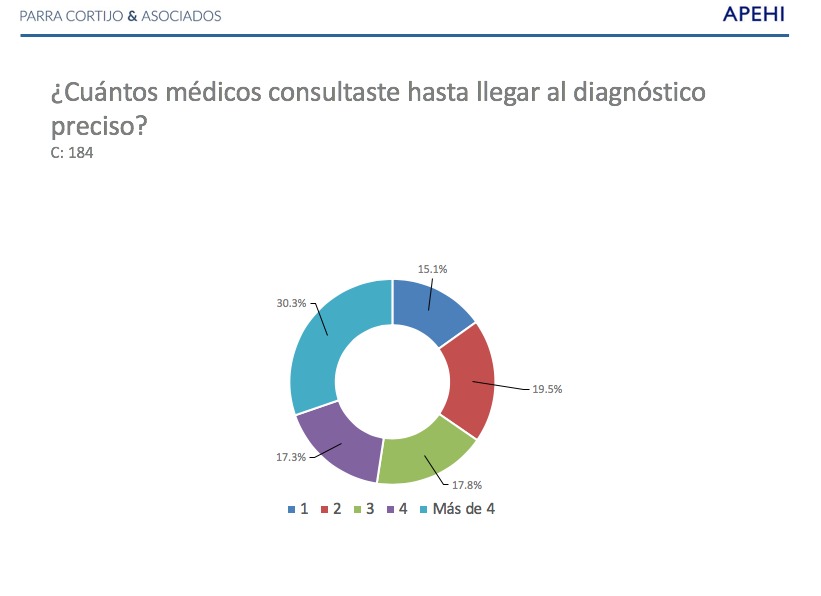Leading Argentine patient advocacy group APEHI (Ayuda a Pacientes con Enfermedades Hipofisarias) -loosely translated “Help for Patients with Pituitary Disease” – recently conducted a study to gain more knowledge about people with pituitary disease in Argentina. Their objective was to try to understand in more detail the diagnostic processes, treatments, medication, family support, and the quality of life considerations of these patients. An eighteen-question survey was deployed via email registrations and Facebook yielding 184 responses. APEHI founder and WAPO (World Alliance of Pituitary Organizations) member Sandra Mesri was kind enough to share these findings with us, which I’m sure will be of interest to our audience. Here are some of the highlights.

Respondents were asked the year in which they were diagnosed. Results show a remarkable upward trend from 1995 to 2017 tracking with worldwide advances in diagnosis, treatment, and awareness of these diseases.
In another interesting finding respondents were asked the symptoms they observed early in their journey. The top 10 include feeling tired, headaches, obesity (weight gain), menses irregularities in women, vision changes, muscular weakness, excess sweating, snoring, and hypertension.
Quality of life issues was also noted, and respondents were asked to point to certain daily behavioral situations. Upwards of 73% of respondents reported, often, to the majority of the time, to always feeling depressed. Slightly over 58% said physical changes run their lives.

Also of note, more than 60% saw between three and four physicians before they were correctly diagnosed, with 30% reported seeing more than four doctors.
On a positive note, most people 60% say they have a “very good” to “good” outlook for the future.
Please contact us if you would like to get more information on the survey findings. Please note it is in Spanish.
WAPO and PWN are working closely to share best practices so patient advocates around the world can take advantage of the information to improve quality of life for their constituents.
PWN has conducted a variety of surveys over the years covering a myriad of subjects related to pituitary disease. You can find these surveys and their specific results here.
© 2018, Pituitary World News. All rights reserved.
